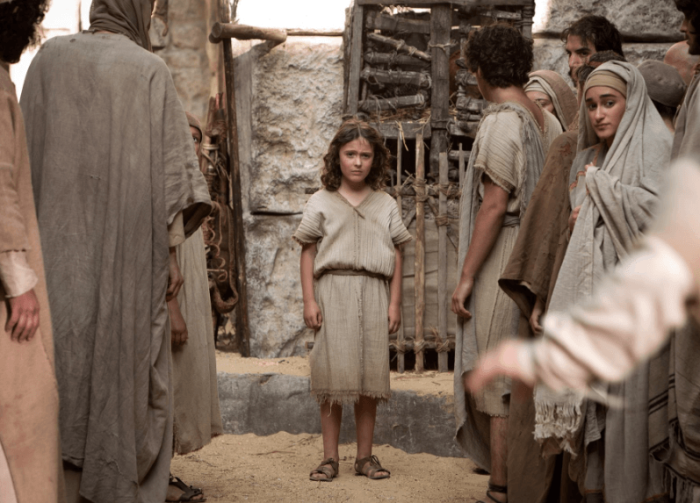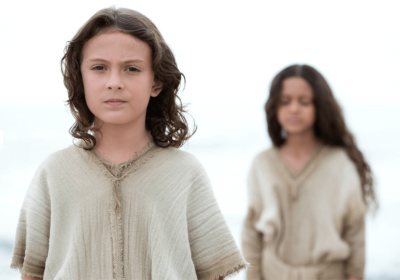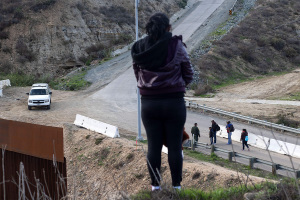Director of 'The Young Messiah' Shares Major Miracle Behind Making of Film

"The Young Messiah" will hit theaters March 11th but the upcoming biblical drama almost did not make it to the big screen after losing millions before it was even released.
Based on the novel Christ the Lord: Out of Egypt by Anne Rice, "The Young Messiah" sets out to illustrate the life of a young Jesus Christ. Directed by Cyrus Nowrasteh and co-written with Betsy Giffen, "The Young Messiah" chronicles one year in Jesus' life when he was seven.
With the Holy Land in turmoil, young Jesus and his family leave Egypt for their homeland in Israel. His earthly father Joseph and his mother Mary try to protect Jesus from knowing the truth about himself as they are fully aware of the dangers of their world, including a corrupt King Herod, civil unrest, and a brutal occupying Roman force. The family is faced with real crises and foes large and small. The movie explores faith, love, fidelity, and humor.
The following is an edited transcript of an interview with the film's director and co-writer Nowrasteh, in which he shares about the making of the film, the miraculous comeback after millions was lost during the original taping and how the movie personally impacted him.
The Christian Post: Early on in the film it's noticeable that a character representing satan is out to get the young Jesus, can you explain the idea behind that?
Nowrasteh: Satan is present in the novel and we decided to expand on this idea. Making him ever present, lurking about the child, monitoring and watching – a threat that only the boy can see. In a drama such as this, it's advantageous to have the antagonist present and about, as much for dramatic reasons as theological ones.
CP: The first miracle recorded in the Bible is when Jesus turns water into wine but in "Young Messiah," Jesus was performing miracles since a child. Is that what you believe happened in his young life?
Nowrasteh: He performs three miracles in our movie and it's clear this is the first time he's aware of it. It troubles him and propels our story forward. The water-into-wine miracle was "suggested" by Mary to Jesus hence she must have known or seen it in the past. That was our premise. But, Jesus turning water-into-wine is the first recorded miracle.
CP: In scripture, both James and Jude are recorded as Jesus' brothers. Why did you guys decide to not have his siblings as a part of the film?

Nowrasteh: The theologians we consulted with were unable to agree on James. In some denominations he is younger, which contradicts the beliefs of many. In other denominations (Eastern Orthodox) James is older by a previous marriage of Joseph – again, offending many. In Biblical times, with extended families, cousins were often called "brother" and "sister." We chose to portray James as a cousin and play it safe.
CP: Adding Sean Bean and the centurion to the storyline is a nice addition to the film. What was the inspiration behind that?
Nowrasteh: The book speaks of chaos and danger and threat in the ancient world. Hence the overwhelming desire for a Messiah. In a movie we can't talk about it, it has to be shown and experienced "live." So we created characters who represent this: King Herod and the Roman centurion, Severus, portrayed beautifully by Sean Bean. They add tension and jeopardy. Two things essential in drama.
CP: What would you says is a unique story having to do with faith or Christianity surrounding the making of the film?
Nowrasteh: An earlier incarnation of the film was shut down while we were in pre-production in Italy, [because of] a devastating occurrence on any film which usually means you're done. $3 million dollars went down the drain. The assumption was that we would never get the film made. It took one-year-and-eight months to get the film back up, it would not die. And, in the end, the film was much better for it. That sacrifice made for a more powerful, more orthodox, film.
CP: How did the film impact you?
Nowrasteh: Making this film, getting the opportunity to tell this unique story, was a privilege and honor. The entire experience has humbled me and brought me closer to God.
Nowrasteh maintained that while no one was ever proselytizing as far as he could tell, "all the actors on-set were Christian."
For more information visit theyoungmessiah.com



























